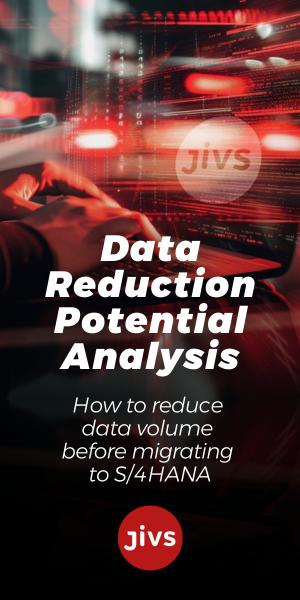Founders and CEOs of scaleups face a pivotal decision between expanding their IT landscape or integrating a public cloud ERP solution, which provides a flexible, modular architecture that supports growth, enhances operational efficiency, and fosters investor confidence while overcoming skepticism about its value.
As key enablers unlocking business value, founders, CEOs, and entrepreneurs exercise tremendous influence over their scaleup’s future. Continually fine-tuning business operations and financial performance, they combining people, processes, and technologies as a foundation for change management.
Yet, these roles inevitably reach a crossroads where they must choose between adding more applications or rethinking their entire IT landscape. It’s not an easy choice – but there’s no time to waste when the traditional combination of line-of-business point solutions and ERPs makes scaling operations to meet demand more daunting.
So how can your scaleup decide, act, and behave in ways that result in the revenue growth, operational economies, and improved cash flows that investors, IPO auditors, and partners want most?
According to IDC, the answer is a public cloud ERP that delivers the gains that boost company valuations, elevate merger and acquisition attractiveness, and earn the trust needed to acquire more capital for expansion.
Trade in scepticism for a profitable path forward
Although a widespread practice, using systems specifically designed for finance, project management, sales, logistics, or any other business function is outdated. Technology has dramatically changed since the late 1990s and early 2000s, when the advantages of targeted software outweighed the cost of implementing, maintaining, and configuring increasingly complex, large, and monolithic ERP systems.
Unfortunately, scaleups tend to be sceptical of the value the latest generation of ERP provides. Decision-makers are concerned that the technology’s business-wide coverage offers too many functionalities and integrations that cannot be immediately used, leaving an impression of wasted spending, less control, and underperformance.
Such scepticism guiding technology decision-making is incredibly risky, whether you’re preparing for or experiencing high growth. You miss opportunities to improve operations, reach new customers, and surpass the competition with the latest applications, processes, and tools. More importantly, you lack the foundation to acquire the hallmarks of an industry-disruptive scaleup: pivoting people and processes quickly to seize new opportunities profitably.
Public cloud ERP can put to rest both sides of the “should we or shouldn’t we” debate over today’s ERP investments. Its multi-layered, modular architecture sets a core foundation of master data and processes, standardising operations while providing the flexibility to adopt best practices, leverage new applications, and customize and innovate when necessary to self-differentiate. The cloud provider also applies the latest tools, compliance requirements, and expert resources to help ensure the entire system and its contents are consistently secure.
Support growth with consistency, flexibility, and trust
Imagine your scaleup is in hyper-growth mode, quickly becoming a Series C with plans to expand your reach to customers in dozens of countries within one year. A core finance application and proven methodologies are required to support all the processes, activities, and strategies to realise this goal profitably in the short and long term.
A cloud ERP helps establish a real-time overview of all entities within the corporate structure. Your finance leader can then scale the business holistically with better control of global operations, from risk management through tax compliance to each local office’s cash reserves and profit position.
But that benefit of cloud ERP is only the beginning. Under the same cloud subscription, multiple areas of your organisation can also benefit from the data, insights, analytics capabilities, and views from the ERP solutions. For example, your HR administrator can leverage insights to hire the right talent quickly and legally. At the same time, your supply chain manager examines whether the right vendors are in place to match the growth trajectory.
Gain value from the right functionality at the right stage
When evaluating ERP software, it’s easy to focus on features and functions. The capabilities delivered today will be available tomorrow. But what about those that you’ll need five months from now?
That’s one of the key benefits of adopting public cloud ERP early in your business’s growth. Modern technologies, best practices, and workflows are being innovated at an exponential pace – many of which will become the puzzle pieces you’ll need to profitably shape your business’s future. Meanwhile, you can tap into a trusted partner that can guide your team to deploy the right functionality at the right growth stage and ensure your proprietary data, intelligence, and systems remain secure.






